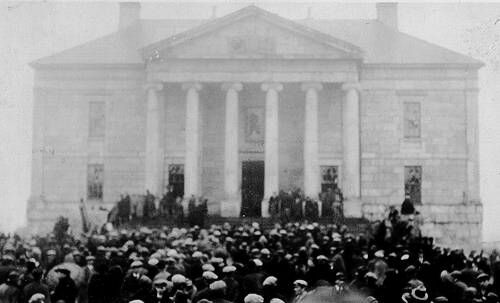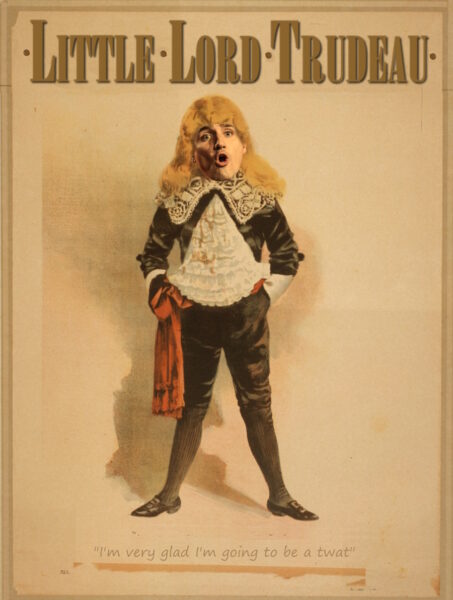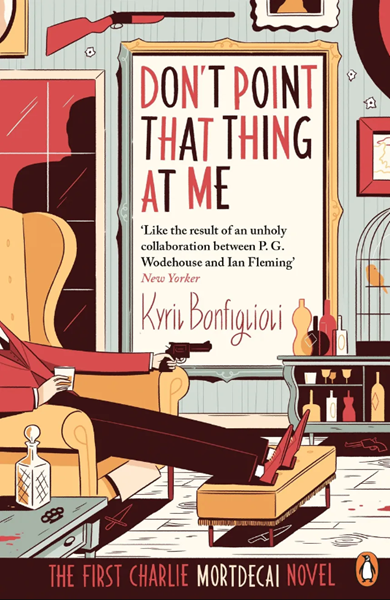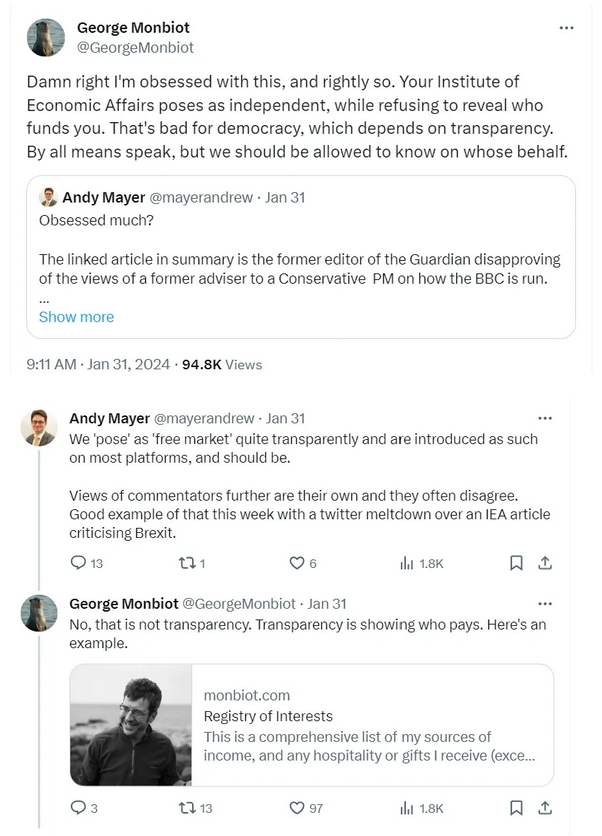Forgotten Weapons
Published Feb 29, 2016The Johnson light machine gun is one of the lesser-known US military machine guns of WWII, although it seems to have been very popular with all those who used it in combat. Melvin Johnson made a commendable attempt to get his rifles adopted by the US military, but was unable to unseat the M1 Garand as American service rifle. However, he did make a significant sale of both rifles and light machine guns to the Dutch colonial army.
By the time those Dutch guns were ready to ship, however, the Japanese had overrun most of the Dutch islands. The guns were thus basically sitting on the docks with nowhere to go, and at that point the US Marine Corps took possession of them. Because of their short recoil action and quickly removable barrels, the Johnson guns were ideal for airborne Paramarines, and saw use in the Pacific with these forces. They were also used by the joint US/Canadian First Special Service Force in Italy.
In many ways, the Johnson LMG is similar to the German FG-42, although with more emphasis on full-auto use instead of shoulder rifle use. It fired from a closed bolt in semiauto and from an open bolt in full auto, and had a bipod both effective, light, and easily detachable. Overall the Johnson is a light, handy, and very easily dismantled weapon, and its popularity with combat troops seems well deserved.
February 4, 2024
Johnson LMG: History & Disassembly
QotD: American railroads and the Interstate Commerce Commission
The railroads [in the decades immediately following the U.S. civil war] saw advantages to regulation. Unstable prices, disliked by rail customers, could also be detrimental to the railroads. A recession in 1884 led to the failure of a number of railroads, and the railroads wanted to undertake pooling arrangements for their mutual profitability. Thus, the railroad industry, which was very competitive, wanted the ICC [Interstate Commerce Commission] to stabilize rates, regulate routes, and protect their profitability. Essentially, the ICC cartelized the industry, allowing it to be more profitable than it could have been in a more competitive unregulated environment.
Randy Holcombe, Liberty in Peril: Democracy and Power in American History, (2019).
February 3, 2024
The climate alarmists long ago gave up honest scientific reporting
Tom Knighton says he used to fully buy in to the climate alarmist message, but eventually realized the fix had been in for years, especially when it came to the predictive ability of all the climate change models … as in, their total lack of predictive ability:
When Al Gore’s An Inconvenient Truth came out, I watched it. I was terrified by the world being described, and since I was still pretty liberal and sort of an environmentalist, I took it all to heart.
Over time, as my personal politics shifted, I still had concerns regarding climate change. After all, it is what it is, right?
Until I came to look deeper into the issue and the one thing that shattered my belief in the whole concept: The fact that not a single climate model has ever panned out as predicted despite pretty much none of the draconian measures we’re told we need in order to avert disaster ever coming to fruition.
Science is supposed to be predictive. If it can’t predict something in its models, then scientists need to back up and figure out what the problem is. Instead, they seemingly just keep doubling down.
[…]
Let’s be clear here, the idea of taking measurements in heat islands is freshman year stuff. There’s absolutely no way they’re unaware the effect that’s having on their readings, even as most of their instruments are subject to heat bias.
In other words, I can’t accept this is a good faith error.
No, I believe this to be malicious.
Climatology isn’t exactly a field of science that would ever be considered sexy. Before all the climate alarmism, research grants were likely few and far between. People weren’t overly worried about the climate because it simply ways.
Then scientists started screaming that we were all doomed. The end is nigh, they told us, screaming at the top of their lung and acting just shy of wearing a sandwich board in Times Square.
With that came money and prestige.
Suddenly, climatologist could get recognition and write bestselling books. They could get grants from everyone and their brother to fund their research. The thing is, they had to keep up the charade. People had to believe that we were going to die if we didn’t do something.
Maybe they actually want the draconian measures they suggest, measures that pretty much amount to going back to living in mud huts, but with solar- and wind-created electricity so we won’t need to burn wood to survive.
Or something.
Justin Trudeau doesn’t seem to understand why he’s losing so much support from voters
Tailing on to the previous article, here are some thoughts from The Line‘s Matt Gurney about the strengths and weaknesses of Justin Trudeau — and I despise the man, but I accept he’s a very good politician — and the odd fact that he can’t seem to grasp the reason for his ongoing fall in popularity among Canadians:
… it was a specific comment by the PM that really stayed with me. It’s this:
… Trudeau does believe, however, that Liberals are up against something relatively new in this climate, which he calls opinion-as-identity politics.
“I don’t think that was a feature too much of other times in politics — where what you think about something actually creates the circles and the people that you actually associate with, and it defines who you are.”
I’m going to let Tom Cruise in the delightful and little-remembered sci-fi film Oblivion convey my reaction to the PM’s comment there:
This is a statement that I’m having a hard time processing, and that I’ve been reflecting on for weeks, because there is no version of Prime Minister Justin Trudeau — at least, in my understanding of the man — that is dumb enough to believe such a silly thing. Dividing ourselves into tribes identified by our opinions on stuff is exactly what human beings do, and have always done. The first monkey to get out of a tree and stand on solid ground and think to themselves, “Hey, it’s kind of cool down here,” was undoubtedly, immediately ostracized by all the other monkeys that thought that life atop the trees could not possibly ever be beaten.
And we’ve been finding new things to disagree about, and kill each other over, ever since. Which skin colour is best, which holy book contains the real guide to salvation, which ideology is the path to true human enlightenment … human beings have slaughtered each other by the millions over this stuff for as long as there have been human beings. Sure, every so often we squabble over resources. Who gets to control which oil field or prime cattle pasture and the like. But most of our nastiest fights have been over opinions about stuff. Maybe substantive matters, things like racial identity or religious affiliation, but still just opinions. And if we’re honest, some of the opinions have been pretty dumb. Not worth killing or dying over.
Hell, as I was thinking about writing this column, my young son very solemnly and seriously told me about some drama on the schoolyard he’d been part of. It turns out some kids who are normally good buddies had come to tears and almost to blows because … they liked different NFL football teams, and tensions were running high during some of the recent playoff games. I know it’s easy to dismiss this as just boys being boys, but I actually think it’s pretty useful here as an example of humans being humans. There is nothing that symbolizes the way we simian-brained weirdos approach life better than imagining a bunch of thinking, feeling people becoming emotionally overwhelmed because of a disagreement over which collection of overpaid athletic prodigies should advance while a different collection of overpaid athletic prodigies wearing another colour shirt heads home for a long break.
It’s ridiculous. But it’s us. It’s humans. Through and through. I’m a sports fan, too, and I’m well aware of the fact that sports are one of those handy things we use as a society to channel our base, primal, aggressive instincts. I get up and cheer wildly when the Leafs beat the Canadiens because it satisfies some part of my brain, and millions of other brains, that would probably otherwise result in Toronto and Montreal raiding each other for chickens. Or worse. Human beings are constantly deciding stuff and then sorting whole populations accordingly, and then getting emotionally invested in those divisions. I like it more when we channel it into sports rivalries and fights over who has the superior bagel.
How can the prime minister not understand this about us?
“There are no tangible consequences for politicians who violate ethics rules. The maximum fine is just $500”
Chris Selley helpfully explains why — even if the ethics commissioner turns a blind eye, again — Justin Trudeau should avoid ostentatiously living like an aristocrat in the Ancien Régime of pre-revolutionary France:
Interim federal Ethics Commissioner Konrad von Finckenstein authored a great moment in Canadian political accountability on Tuesday in explaining to a parliamentary committee when and why he might investigate a very generous gift to the prime minister from a friend. (Gifts from friends are explicitly allowed for in the Conflict of Interest Act.) The gift would have to be “really exceptional,” he suggested, like “a Ferrari,” or “$1 million,” to trigger an investigation.
You can get two Ferrari 296s for $1 million. Or a Daytona SP3 for around $2.5 million. It’s a very confusing standard.
Not rising to this “exceptional” level, apparently, is the free nine-day vacation in a luxury Jamaican villa the Trudeau clan enjoyed over the Christmas break, with a retail cost of around $84,000, courtesy of family friends who own the estate.
“This is a true friend, who has no relations with the government of Canada,” von Finckenstein told the committee (read: unlike the Aga Khan, whom von Finckenstein’s predecessor Mary Dawson found not to have been a real-enough friend to escape her wrath). “What we have here is clearly a generous gift, but it’s between people who are friends and I don’t see why, just because they’re well off, they can’t exchange gifts.”
Leaving aside what the prime minister is allowed to do with his truly rich true friends, it remains utterly astonishing to me that Justin Trudeau or someone with an ounce of sway in his office wouldn’t put a stop to this conspicuously consumptive behaviour as a matter of choice.
[…]
Hard cases make bad law, and it’s almost impossible to imagine a future prime minister luxuriating in his birthright lifestyle the way Trudeau does. In fact, so long as such gifts are disclosed — which the Aga Khan caper might well not have been, had the National Post not been tipped off — I think it’s probably better to let Canadians decide for themselves what they think of their PM’s behaviour when he’s unshackled by hard-and-fast rules.
It’s not as though the ethics commissioner’s findings of guilt have any real effect. There are no tangible consequences for politicians who violate ethics rules. The maximum fine is just $500. Former finance minister Bill Morneau was dinged just $200 for forgetting to disclose his villa in Provence. (I suspect La Villa Oubliée is unavailable to rent at any price.)
A Day in Ancient Rome
toldinstone
Published Nov 10, 2023Following Marcus Aurelius on the day of his final triumph.
Chapters:
0:00 Another day
1:05 Petitions
3:12 Breakfast
3:51 The Triumph
4:44 Romanis Magicae
5:37 Artifacts of the wars
7:09 Caesar, you are mortal
(more…)
QotD: The Postmodernist’s Dilemma
If Leftists could see the obvious consequences of their own positions, they wouldn’t be Leftists. We know this. But since it’s their world, and we have to live in it as best we can, it helps to go back and spell out those obvious consequences from time to time. The biggest, most obvious one of all is what I’m going to call The Great Contradiction. It’s the obvious next step from the Great Inversion: If “whatever is, is wrong”; then all authority, everywhere, is illegitimate — which includes the authority proclaiming The Great Inversion.
We could also call it “the PoMo’s Dilemma”, since this stuff originated in the ivory tower back in the Sixties, and finally broke containment in the late Seventies. Most intellectual fads quickly become caricatures of themselves, but in their haste to get to the next hot new thing the PoMos decided to cut to the chase. Postmodernism started as a self-parody. Put simply but not at all unfairly, PoMo is the assertion for a fact that there is no such thing as a fact. There is no Truth, just “truth”. No eternal verities, just perspective, just discourse; it’s all — say it with me now — “just a social construction”.
I suppose we must give the early PoMos credit for having — in a thoroughly Postmodern way – the courage of their convictions. When Alan Sokal invited the PoMos to try transgressing the Law of Gravity from his twenty-first floor apartment window, the goofs from Social Text published a “rebuttal” to Sokal, informing him, a working physicist, that they, the English Department, understood physics better than he did. He meant it as a joke, but he was really right all along about the so-called “law” of “gravity”.
That was 1996. At that point, any sane society would’ve had the editors of Social Text dragged out of the faculty lounge and shot in the middle of the quad, pour encourager les autres. But of course we chose not to. And why would we? Being close to three decades deep into the Great Inversion by then, we got much barmier stuff than anything Social Text published in freshman orientation. Stick it to The Man, we were told, and don’t trust anyone over thirty …
Severian, “Hoist on Their Own Petard”, Rotten Chestnuts, 2021-04-19.
February 2, 2024
Perhaps something for Wodehouse fans who want a bit more sex and violence in their fiction
At The Conservative Woman, Alan Ashworth recommends a book by one of P.G. Wodehouse’s disciples, but only for those who are ready for Plum-like wit with “lashings of sex, violence, murder and drunkenness”:
If, like me, you have read every line of PG Wodehouse’s 90-odd books – at least half a dozen times each in the case of the Jeeves novels – your attention might be piqued, if piqued is the word I seek, by one of the Master’s disciples. His name is Kyril Bonfiglioli.
In a trilogy about an art dealer named Charlie Mortdecai based loosely on himself, Bonfiglioli, or Bon as his friends and enemies called him, combines a Woosterish turn of phrase with lashings of sex, violence, murder and drunkenness. Mortdecai is snobbish, greedy, lustful, unscrupulous, untrustworthy, gloriously politically incorrect and hilarious to boot.
The first book, Don’t Point That Thing At Me, was published in 1973, two years before Wodehouse died. In a short foreword, Bon writes: “This is not an autobiographical novel: it is about some other portly, dissolute, immoral and middle-aged art dealer.”
The action begins with Mortdecai in his Mayfair mansion burning a gilt picture frame in the fireplace. He, of course, has a sidekick whose name begins with J but Jock has little in common with Bertie Wooster’s loyal manservant. As Bon puts it, “Jock is a sort of anti-Jeeves; silent, resourceful, respectful even, when the mood takes him, but sort of drunk all the time, really, and fond of smashing people’s faces in. You can’t run a fine-arts business these days without a thug and Jock is one of the best in the trade … his idea of a civil smile is rolling back part of his upper lip from a long, yellow dogtooth. It frightens me.
“Having introduced Jock – his surname escapes me, I should think it would be his mother’s – I suppose I had better give a few facts about myself. I am in the prime of life, if that tells you anything, of barely average height, of sadly over-average weight and am possessed of the intriguing remains of rather flashy good looks. (Sometimes, in a subdued light and with my tummy tucked in, I could almost fancy me myself.) I like art and money and dirty jokes and drink. I am very successful. I discovered at my goodish second-rate public school that almost anyone can win a fight if he is prepared to put his thumb into the other fellow’s eye.”
Charlie is receiving a visit from a fat policeman named Martland who suspects him, correctly, of involvement in the theft of a Goya from Madrid five days earlier.
“Somewhere in the trash he reads, Martland has read that heavy men walk with surprising lightness and grace; as a result he trips about like a portly elf hoping to be picked up by a leprechaun. In he pranced, all silent and catlike and absurd, buttocks swaying noiselessly. ‘Don’t get up,’ he sneered, when he saw that I had no intention of doing so. ‘I’ll help myself, shall I?’
“Ignoring the more inviting bottles on the drinks tray, he unerringly snared the great Rodney decanter from underneath and poured himself a gross amount of what he thought would be my Taylor ’31. A score to me already, for I had filled it with Invalid Port of an unbelievable nastiness. He didn’t notice: score two to me. Of course he is only a policeman.”
Martland features heavily in the ensuing romp, which involves several murders, a journey across America in a Rolls-Royce, a nymphomaniac millionairess and a remote cave near Silverdale, Lancashire.
The Sad Story of Churchill’s Iceman, Geoffrey Pyke
World War Two
Published Jan 31, 2024Geoffrey Pyke is remembered as an eccentric scientist who spewed out ideas like giant aircraft carriers made of icy Pykerete. But there was much more to him than that. He was a spy, a special operations mastermind, and his novel ideas contributed to the success of D-Day.
(more…)
“Who funds you?”
Tim Worstall considers George Monbiot (lovingly known as “The Moonbat” to early bloggers) and his demand that others make their sources of income transparent to show whether their opinions are being “bought” by shady interested parties:
George Monbiot has his positive attributes. His change of mind on nuclear power in the face of the evidence from Fukushima — that no one at all died from three reactors going pop, while 15k and more did from the tsunami and therefore he became in favour of nuclear — is an example. OK, that’s rather hitting someone over the head with a cluebat but it’s also true that Caroline Lucas didn’t manage to note that same point. So, there is that. Even if “more aware of reality that Caroline Lucas” is a low bar to have to clear.
George can also rather dig himself into holes. As he is here with his insistence about funding of varied think tanks and so on.
And, OK, let’s go look at George’s registry of interests […]
OK, that’s the sword that George declares he’s going to live by. Fair play and all that.
Except, except. Last year was pretty good, book royalties flowing in and more power to that typing. The core earning is The Guardian, royalties on top. Not unusual for a writer to be honest. Gain a core contract that produces an ongoing and assured income, spend time floating books or other work out there to see what happens to income. Freelancing is certainly a great deal more fun if you already know where the monthly nut is going to come from with such a core contract.
But, but.
Book royalties, umm, Penguin? Used to be part owned by Pearson, also at the time owners of the Financial Times. So that’s a connection into the shadowy world of international capitalists. It’s now Bertelsman, so foreign international capitalists to boot. Macmillan? They admitted to bribery in Sudan over a school books contract. So a link to international thieving capitalists too. HarperCollins? That’s Murdoch, no more need be said, right?
But, but, a reasonable response would be that this is all far removed from the level George works at. That would be a fair enough response too.
But note the thing here. By agreeing that there’s some level of connection which is too ephemeral to matter we are agreeing that this thing called the corporate veil exists. We can indeed don the tin foil hats and connect near anything we want. Pretty much all Europeans are 16th cousins for example. So I — and George — am/are responsible for WWI because we’re both related to the Kaiser, Emperor and Tsar all at the same time. It’s our family wot dun it, see? Within economic connections that concept, that there’s this thing ‘ere which is responsible not the further connections away from that, is called that corporate veil. I shop at Sainsbury’s sometimes. The Labour Minister husband of a Sainsbury’s heiress employed two butlers (before dumping her for his boyfriend if memory serves). It’s possible to claim that I therefore fund dual butlership but it’s not a claim that all that many are going to regard as valid.
But The Guardian, that core contract. The newspaper seems to have returned to profit recently but there was a decade or so there where it was losing tens of millions a year — and more in some 12 month periods. Those losses were covered by the profits from Autotrader more than anything else. So, George was funded by the facilitation of climate destruction through the trade in internal combustion engined cars.
If, you know, we wanted to put it that way.
J.M. Browning Harmonica Rifle
Forgotten Weapons
Published Sep 6, 2015Have you heard of Jonathan Browning, gunsmith and inventor? Among his other accomplishments, he is credited with designing the harmonica rifle in the US — and we have an example of one of his hand-made guns here to look at today (made in 1853). Browning was a Mormon, and spent several years slowly moving west periodically setting up gunsmithing shops before he reached his final destination of Ogden, Utah. There he settled down for good, and had 22 children with his 3 wives. One of those children also showed an aptitude for gunsmithing, and formally apprenticed to his father. You might recognize his name …
QotD: Financial bubbles
That financial markets sometimes go off on one has been noted for centuries now. Dutch Tulips, the South Sea Bubble, Dotcom and more recently Bitcoin have all shown that the lust for easy speculation profits can lead to, well, to financial excess at minimum. Those with an orderly cast of mind like to point out that all of this is waste. If instead the truly wise and clever people – after we’ve installed them in government or at least the bureaucracy – could apportion society’s assets very much better. You know, truly invest in the diversity advisers civilisation so badly needs.
The thing is, economists often disagree at this point. Sure, financial bubbles, they occur. Sure, there’s waste in them. But perhaps the very bubble itself is an either useful or necessary part of the process.
Necessary in that perhaps it needs a mania to get some new technology over the finish line. I tend to think it’s not going to happen with Tesla but it did with Railway Mania. Without speculators searching for easy money the network never would have been built out. Without Dotcom Amazon probably wouldn’t have got funded through the decade it was scratching a living.
It’s also possible that it’s just useful. For the overbuilding in the mania might then leave assets that are repurposed to get other technologies over that finish line into general use. Global Crossing lost a fortune – no, really billions – on building out fibre optic cabling to girdle the world. Which was, after the bankruptcy, bought up by the Googles and the like to carry all this web and video stuff. It’s arguably true that without the previous overinvestment we’d simply never have developed – or perhaps not for decades – such resource and bandwidth-hungry hogs.
Tim Worstall, “Cloud Rendering – The Latest Proof That Investment Bubbles Actually Work”, Continental Telegraph, 2019-03-17.
February 1, 2024
Rome: Part 1 – Mythical Origins to the Founding of the Republic
seangabb
Published 31 Jan 2024This course provides an exploration of Rome’s formative years, its rise to power in the Mediterranean, and the exceptional challenges it faced during the wars with Carthage.
Lecture 1: Mythical Beginnings and the Founding of Rome (753 BC – 509 BC)
• What is said by the archaeology and modern research on the origins of Rome
• The lack of authentic literary history of Rome in its early period
• Legend of Romulus and Remus
• The establishment of Rome’s early monarchy
• Transition to the Roman Republic
(more…)
Newfoundland – “We used to be a country”
In The Line, James McLeod outlines a difficult period for the Dominion of Newfoundland which ended up narrowly voting to join Canada rather than resume self-rule that they’d had up to 1934 when the Newfoundland House of Assembly abolished itself:

Great Riot of 1932 in front of the legislature, the Colonial Building, in Newfoundland.
Provincial Archives of Newfoundland and Labrador (Reference PANL A2-160), via Wikimedia Commons.
Before 1933, Newfoundland was proudly a dominion within the British empire. Under the Statute of Westminster, Newfoundland had the same legal status as Canada, New Zealand, South Africa and the Irish Free State.
Newfoundland was its own country. But it was a country in rough shape.
A year before the Amulree Report was published, a mob of about 10,000 people had gathered outside the Colonial Building in St. John’s. Families were living in destitution on six-cents-a-day government dole, and the government’s finance minister had just resigned and accused Prime Minister Richard Squires of personally lining his pockets with government funds.
The mob turned into a riot, which ultimately barged into the government building. Notably, the rioters briefly paused to observe a respectful silence when a brass band began playing “God Save The King”, but then they went back to rioting.
Squires fled on foot and went into hiding, and then emerged to call an election, which he lost in a landslide. During the campaign, one of his longtime allies, the prominent leader of the Fishermen’s Protective Union, openly wished for fascism.
“What is required for Newfoundland and what is most essential for the present conditions is a Mussolini,” said William Coaker.
Months later, with a new government, Newfoundland was on the verge of defaulting on its debt, and the British stepped in.
The vastly oversimplified version is that the British government was concerned that a member of the British Commonwealth defaulting on its debt could have major implications for the whole empire. So the British government bailed out Newfoundland, on the condition that a commission would be struck to investigate the island’s political and economic affairs. Lord Amulree, a British politician, was appointed as chair.
A year later, with the Dominion still teetering on the verge of bankruptcy, the Amulree Report was delivered. It contained this passage, with my emphasis added: “That it was essential that the country should be given a rest from politics for a period of years was indeed recognised by the great majority of the witnesses who appeared before us, many of whom had themselves played a prominent part in the political and public life of the Island.”
Amulree considered the possibility of some sort of national unity government, but could not get past the conclusion that, “Even if a National Government could be established on a basis which led to a suspension of political rivalry, the underlying influences which do so much to clog the wheels of administration and to divert attention from the true interests of the country would continue to form an insuperable handicap to the rehabilitation of the Island.”
In 1934, the Newfoundland House of Assembly voted itself out of existence. It was replaced by a “Commission of Government” which was just six unelected men, appointed by the British. Fifteen years later, Newfoundlanders narrowly voted to join Canada, although to this day conspiracy theories still linger about how democratic the referendum really was.
I am not a Newfoundlander, and I’m hesitant to make any sweeping statements about how Newfoundlanders relate to their own history. But for a decade, I worked as a journalist in St. John’s, covering politics and public affairs. The collapse of democratic self-rule in the 1930s still looms large in the collective identity of the province.
The Kohima Epitaph: Britain’s Forgotten Battle That Changed WW2
The History Chap
Published 9 Nov 2023What is the Kohima Epitaph and what has it got to do with Britain’s forgotten battle that changed the Second World War? Well, those of you living in the UK and who attend Remembrance Sunday services will probably know the words even if you don’t know the story behind them:
“When you go home, tell them of us and say,
For your tomorrow, We gave our today.”The memorial which bears those powerful words, stands in a cemetery containing the graves over over 1,400 British servicemen and memorials to over 900 Indian troops who died alongside them. They died in one of the bloodiest, toughest, grimmest battles of the Second World War. A battle sometimes called the “Stalingrad of the East.”
Outnumbered 6:1 and half of whom were from non-combat units, the multi-national British garrison stood their ground in bloody hand-to-hand fighting, refusing to retreat or surrender for two weeks until relieved. And even then the battle continued for another vicious month. That stand stopped the Japanese invasion of India in its tracks and turned the tide of the war in South East Asia. Both for its ferocity and its turning point in the war, it has been called: “Britain’s greatest battle”.
The Japanese lost 53,000 men from their army of 85,000.
The British (14th Army) lost 4,000 men killed and wounded.This forgotten victory was made possible by General William (Bill) Slim commanding the 14th Army. Rather like the battle and the 14th Army, General Slim has not received the recognition that he is due. And yet, it is almost completely forgotten. Rather like the army that fought against the Japanese in Burma.
So, as we near Remembrance Sunday, I think it is time to reveal the story of the Battle of Kohima in 1944.
(more…)








